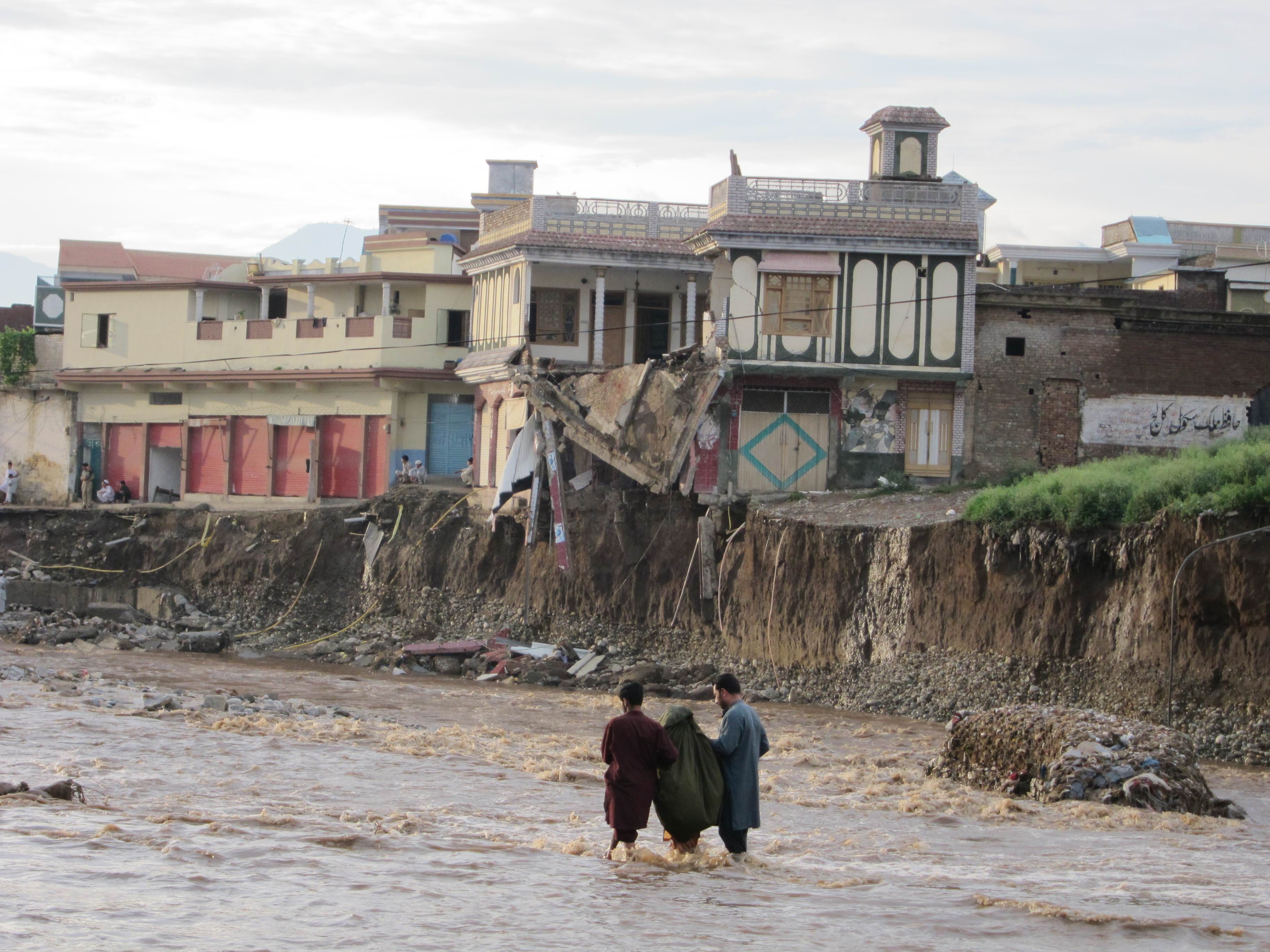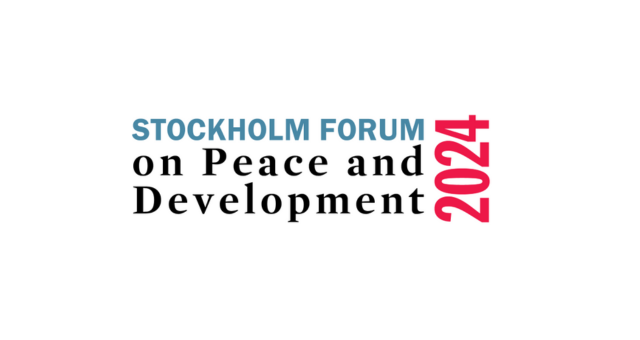Pakistan’s crisis shows that all politics are climate politics

Are democracies capable of bold climate action? The devastating 2022 floods have thrown this question into stark relief for Pakistan. The weak South Asian democracy is suffering not only from last year’s headline-grabbing disaster, but also piecemeal environmental and climatic degradation. Combined with a volatile and unpredictable national political scene and a major financial crisis, the country is facing what observers have called a ‘polycrisis’ and ‘perhaps the greatest economic challenge Pakistan has ever seen.’
However, while Pakistan’s toxic mix of economic disorder, an unstable environment, and an unforgiving macroeconomic context may be unique in its current severity, it is not so in kind. It is neither uniquely vulnerable to climate change, nor especially exposed to what experts warn could be a looming emerging markets debt crisis. This raises two interrelated, pressing questions: What can a democracy under pressure do to build climate resilience? And what should it expect from the rest of the world?
The fog of electoral politics
Given Pakistan’s history of overt and covert military interventions in politics, domestic armed conflict, and a complex constitutional history, the lack of an explicit climate coalition in its domestic politics is not surprising. While extreme weather events such as the 2022 monsoon season can focus domestic - and at times, international - interest, the more common experience of the cutting edge of climate change is the slow drip of gradual variation: less rainfall than necessary, or too much. Too much heat, or too little. The wrong kind of weather at the wrong time of year. When it comes to the impact of climate change on Pakistan’s politics and political institutions, Zafar Imran argues the distinction is vital:
Most ongoing effects of climate change, it seems, are too small and gradual … to be noticed immediately by the people experiencing them, and they tend to be interpreted in light of preexisting social, political, and ethnic fault lines. Violence in this case could come as a result of heightened antagonism between groups who believe each other (and not the climate) to be responsible for their economic misfortunes.
It’s possible to draw weak conclusions about the effect of climate change on political processes and institutions – such as a realignment of business elites along rural agricultural and urban industrialist lines, or intensifying ethnic conflicts linked to shrinking resources. Making stronger claims remains problematic, however, as the subjects tend to recognize them not as the consequence of climate change, but within the framework of existing sociopolitical narratives and cleavages. The realization that we live in the anthropocene – a geological epoch in which human activity alters the earth’s geology and climate – means, even if we do not recognize it as such, that all politics are climate politics.
Judicial activism and its limits
In this regard, Pakistan is far from unique. But it can boast of a remarkable long tradition of aggressive climate and environmental judicial activism. Ali Tauqeer Sheikh traced how the Pakistani judiciary has developed a robust foundation of case law and decision that has historically proven a reliable defense of environmental rights and could form the basis for meaningful climate justice. The cornerstone decision is Shehla Zia v. WAPDA from 1994, where justices found the right to life in Pakistan’s constitution necessarily entailed the right to a clean and healthy environment.
Building on this base, the Pakistani judiciary has forced the state to institute methods and procedures for climate justice within the existing legal framework, served as a site for dialogue between the executive and private citizens, and laid a robust, if incomplete, foundation for just climate action. To build on that foundation, Erum Haider proposes institutional reforms prioritizing local control and direction as key to making Pakistan’s promised billions of dollar of reconstruction and climate finance count. Although Pakistan’s diplomatic corps has steered a more concilatory path, clear-eyed journalists and intellectuals have made the case for climate reparations.
Vulture funds and Green New Deals
While the gap between this rhetoric and that of Pakistan’s formal climate diplomats should not be surprising, it could also reflect the necessity of more reciprocal North-South cooperation in climate change – and especially climate finance. Debt crises and IMF bailouts have been a constant presence in Pakistan for decades, and the cost of servicing that debt severely limits its ability to finance necessary domestic spending. Extensive research shows that developing countries like Pakistan are incredibly reluctant to proactively restructure their debts or default to maintain a veneer of financial respectability – even when doing so would have been to their immense short- and long-term benefit.
Despite the long-term damage delaying restructuring or default can cause – or by being too amenable to bondholders when the time does come – it appears rational given the shorter time horizons of politicians and policymakers.
Furthermore, debt restructuring has become significantly messier and more painful, as a relatively small number commercial banks have been replaced by smaller disparate private bondholders. This both makes them harder to corral and pressure into accepting an orderly solution, but also increases the incentives to behave like “vulture funds” – investors who drag companies through a decade of legal wrangling in the hopes of extracting a major payout.
Despite the focus on why and how heavily indebted countries do or do not try to escape from a debt trap, perhaps a better way to approach the question would be why the global financial system produces so many such cases in the first place. There are parallels here with the climate crisis. While Pakistan is presented with a wide array of climate resilience options from a technical level, its ability to choose is severely constricted by the dominant international economic architecture. Where green developmental agencies and major government interventions into economic life are the cornerstones of climate change policy in the Global North, from the Green New Deal to the Inflation Reduction Act, the prevailing international finance regime limits states in the Global South to the role of “de-riskers” of investments from international private capital. Rather than drive a democratic, publicly-accountable climate resilience strategy, they will instead focus on attracting private finance by guaranteeing set financial returns on ”green” investments. And while very real questions of state capacity belie the more strident calls for many governments to undertake ambitious climate resilience strategies, financializing climate resilience programs and projects only increases recipient countries’ vulnerability to vulture funds and other ”debt predators.”
Daniela Gabor and Ndongo Samba Sylla argue for Southern countries to band together multilaterally, drawing their strength from their ownership of many of the commodities necessary for the green transition.
Yet while such a coalition may arise in the long-term, flood-stricken Pakistan – and many other climate-imperiled countries without significant material leverage—do not have time to wait. But a North-South trust deficit hampers necessary coordinated action. In January, Pakistan hosted an international conference to gather flood relief funds where 87 percent of the $10 billion in support pledged came in the form of loans, and it remains unclear what percentage of support pledged will actually be committed, and when.
The slow grind of negotiations has led some to argue that democracy in its current form is not capable of addressing climate change. But the account above instead fits better with Dani Rodrik's understanding that an international commitment to economic globalization limits a country’s domestic policy choices, and specifically when it comes to the developmentalist and interventionist policies necessary for climate mitigation. In other words, the root problem democracies like Pakistan face in climate resilience is not in the inherent inefficiency of democratic institutions, but in how those institutions are constrained by the decisions of policymakers and regulators in the Global North.



